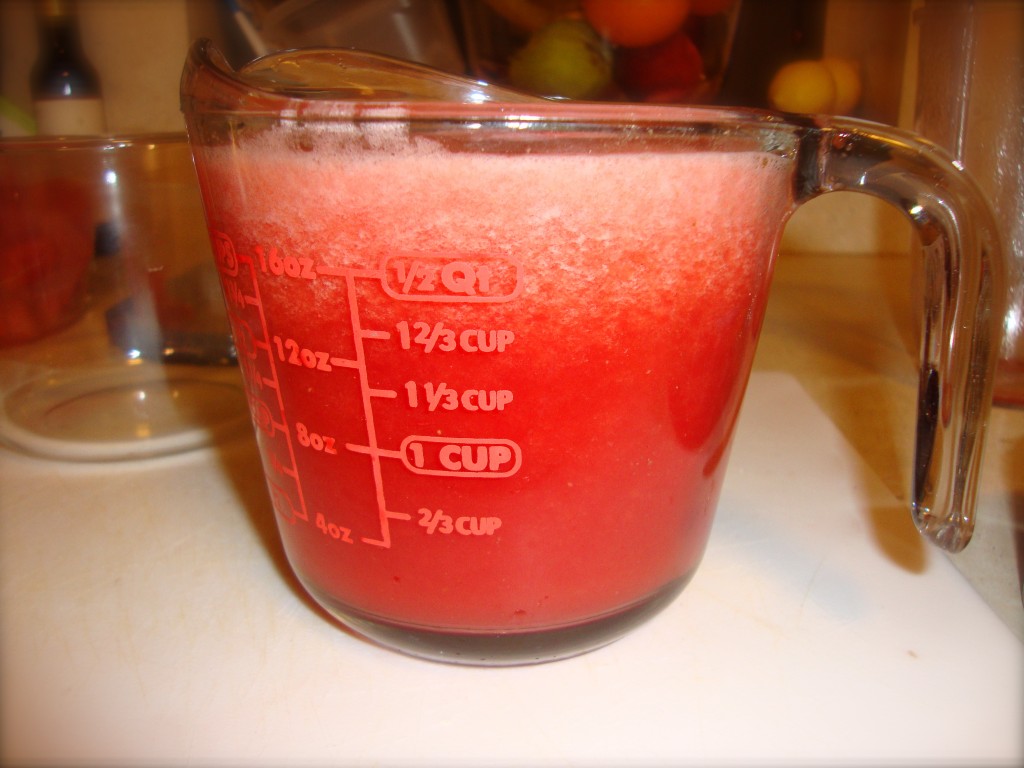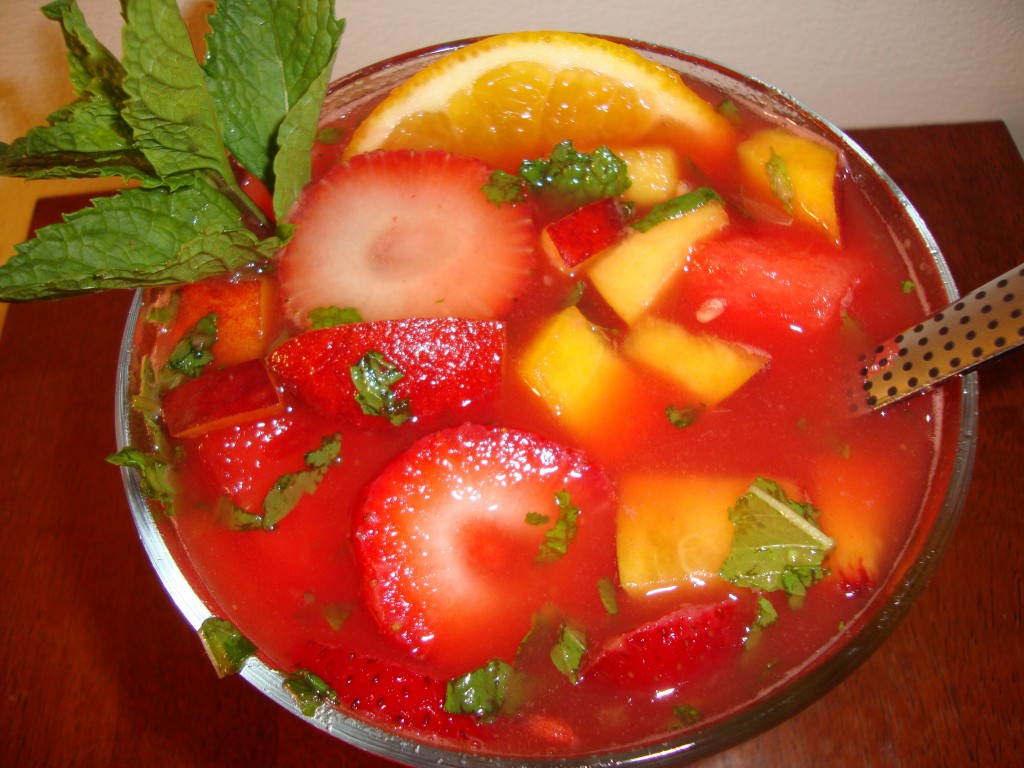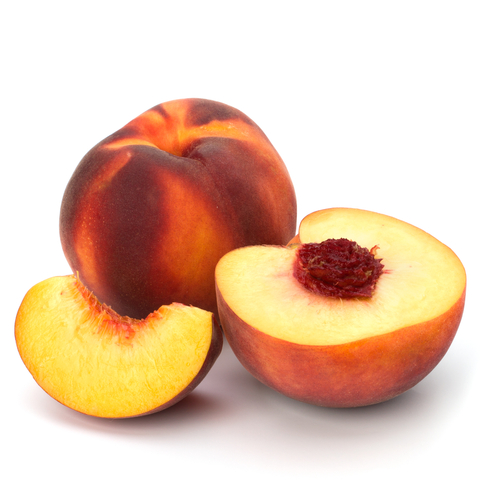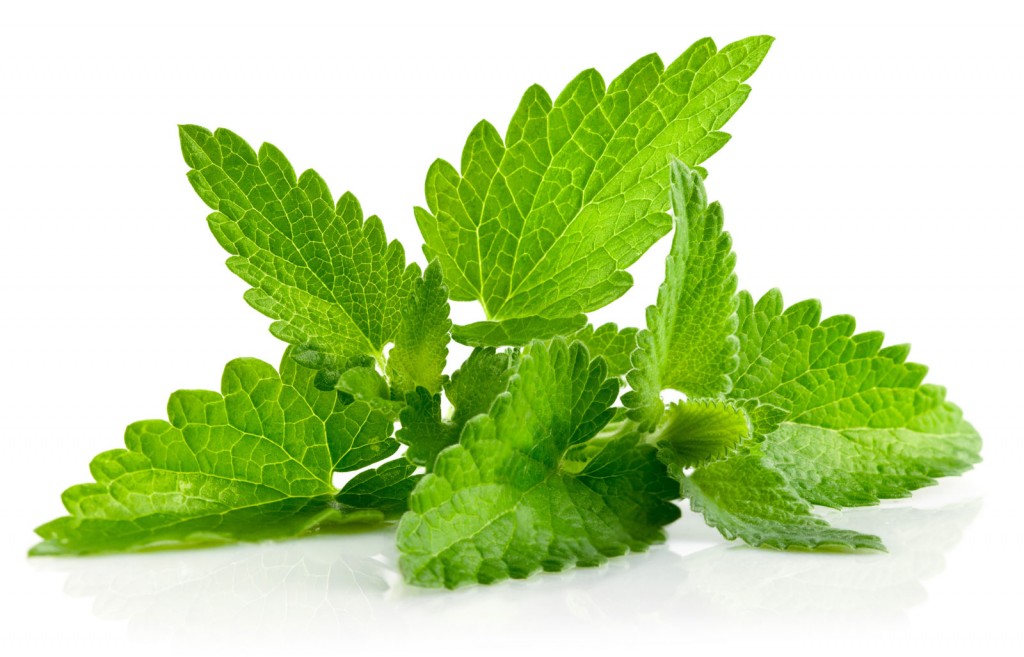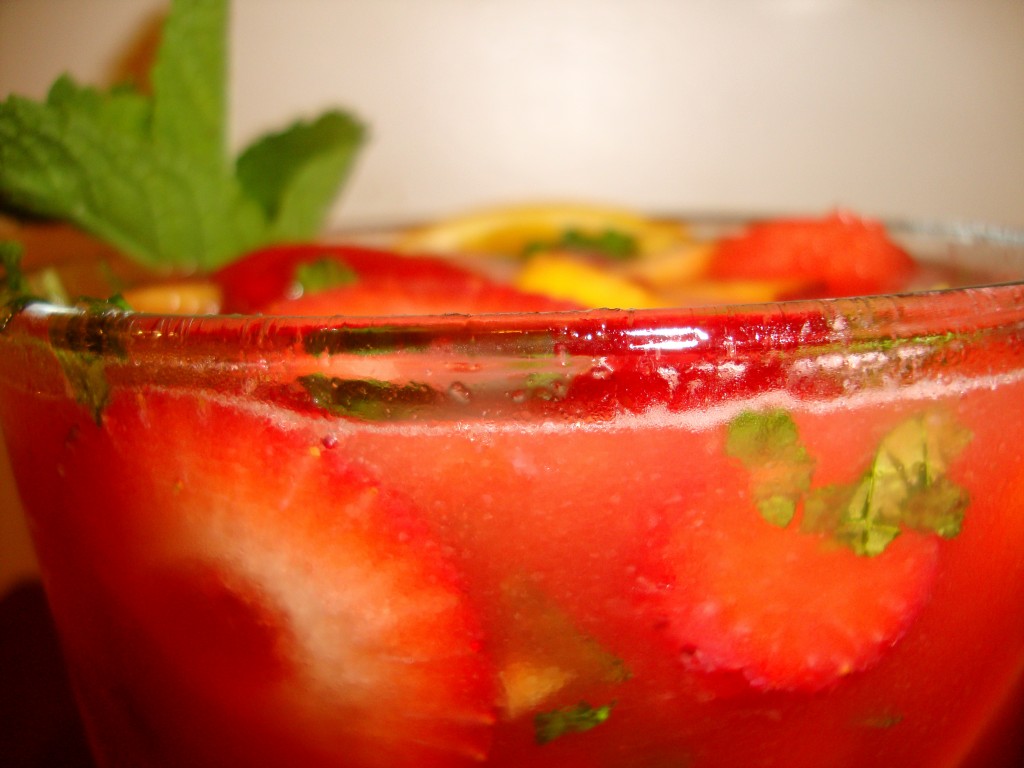x
You’re so fruity…
x
but that’s JUST the way I like it!
x
Thankfully being called fruity isn’t always a bad thing…especially when you’re describing this fabbbb-u-lous summer soup.
Now, I know what you’re thinking… “Fruit in SOUP?? That’s crazy talk!” But trust me! This soup isn’t the average cozy, warm, comfort food you’ve come to know. Instead, it’s served fresh and chilled, just like traditional gazpacho. I promise, this little gem of a recipe is so gosh darn TASTY you’ll be slurping it up well past Labor Day.
The inspiration for my Fresh and Fruity Summer Gazpacho all began when I went out for an impromptu dinner with the boyfriend. After days of hot, humid, and sticky weather the last thing I wanted to do was go out and eat a heavy meal. I did have a hankering for a nice glass (or two!) of wine however. So, needless to say, I managed to I scrounge up some motivation to get out of the house ![]()
x
Off we went to Christopher’s, a casual neighborhood bar and restaurant walking distance from our apartment. I adore this little place because they pride themselves on using all-natural ingredients and have plenty of vegan/vegetarian-friendly options to choose from–even though they’re known for their burgers. Oh, and they serve a great malbec to boot ![]()
x
The boyfriend ordered his usual burger along with a side of sweet potato fries while I decided on two appetizer specials as my main meal– a roasted red pepper and artichoke hummus platter served up with celery, carrots, and pita wedges (it came with pita chips, but our waitress graciously allowed me to sub the chips for an un-fried alternative) along with a side of chilled fruit. The chilled fruit was actually an orange and watermelon based soup, served with yogurt and mint (again, my lovely waitress allowed me to keep it vegan and omit the yogurt…thank you patient waitress!). As soon as I tasted the chilled fruit… I was hooked. It was cool and smooth without being overly sweet–just perfect for this hot and humid summer night.
Immediately, I knew I had to rush home and whip up my own version. We even made a pit stop at the grocery store along the way just so I could pick up all the ingredients ![]() .
.
x
Fresh and Fruity Summer Gazpacho
(Perfect as a light appetizer, snack, or dessert!)
x
Ingredients:
- 4 heaping cups of watermelon, chopped
- Juice of 1-2 oranges (roughly 1/2 cup)
- 2 peaches, chopped
- 8-10 large strawberries, chopped
- large handful of fresh mint, chopped (NOTE: you could also try a smaller amount of basil instead of mint to tone down the sweetness and a litle savory zing to your soup!)
- 1-2 tablespoons of fresh lemon juice (optional)
x
Directions:
- Blend watermelon in a high speed blender or food processor until liquified (I blended mine in my Nutribullet, 2 cups at a time). Then transfer to a medium bowl.
- Add 1/2 cup of freshly squeezed orange juice, the chopped fruit and mint to the same bowl. Whisk together.
- Stir in 1-2 tablespoons of lemon juice (optional).
- Portion out the soup into 2-4 bowls (depending upon how hungry you are!).
- Garnish with a mint sprig and/or orange slice, watermelon cube, strawberry etc…
x
And VOILA! You have a totally chill summer treat 
NOTE: Feel free to get creative with your fruit! Toss in some blueberries for color, or blend half watermelon and half cantaloup for a smoother, and slightly creamier tasting soup ![]()
The best part of all? This simple soup is super healthy!
x
C’mon now…you didn’t really think I was going to give you a yummy recipe without explaining all the fabulous health benefits it has to offer did you?? 
Heath Benefits of Watermelon
x
- Fat-free! (need I say more?)
- Low-calorie (due to it’s high water content–roughly 92%– one cup has just 48 calories!)
- High in vitamin C (reduces the risk of heart disease, asthma, colon cancer, arthritis symptoms, boosts immunity, heals wounds, prevents cell damage, helps prevent aging, protects against free radicals and promotes healthy teeth and gums. Watermelon has 21% of the daily value of vitamin C).
- High in vitamin A and beta-carotene (like vitamin C, beta-carotene reduces the risk of heart disease, asthma, colon cancer, arthritis symptoms while vitamin A promotes eye-health).
- High in lycopene (watermelon has the highest concentration of lycopene found in any fruit or vegetable…even more than tomatoes! Lycopene is a cancer-preventing antioxidant that fights off colon, prostate, breast, lung, and endometrial cancers. Lycopene also protects the body from oxygen damage, protects the DNA in white blood cells, and protects the heart).
- Source of vitamin B6 (which converts protein to energy and aids in brain function).
- High in potassium (which regulates the body’s electrolyte and acid/base balance, helps nerve and muscle function, reduces the risk of high blood pressure).
- Contains citrulline and arginine (together, these essential amino acids improve cardiovascular function, maintain arteries, improve bloodflow, reduce muscle fatigue, repair damaged muscle/bone, reduce healing time for injuries, serve as a precursor for synthesis of nitric oxide, remove ammonia from the body, improve insulin resistance, and help decrease blood pressure).
Health Benefits of Strawberries
- Fat-free!
- Low-calorie (1 1/2 cups charts in at less than 100 calories!)
- Low-sugar
- High in vitamin C (Just 1-cup of strawberries will give you 100% of your daily vitamin C requirement. It is important to obtain your daily vitamin C requirement from food, since humans are one of the only mammals who cannot produce it naturally).
- Contains a phytochemical known as ellagic acid (which has the ability to suppress cancer cell growth, prevent collagen destruction, fight cholesterol, and prevent inflammation).
- Contain lutein and zeaxanthin (these powerful antioxidants work to neutralize free radicals** that have a negative effect on cells).
- High in antioxidants
- Contain flavanoids and phytochemicals (these help to reduce harmful blood lipids and oxidative damage—two markers for heart disease and diabetes).
- High in potassium (just like in watermelon, potassium regulates the body’s electrolyte and acid/base balance, helps nerve/muscle function, and reduces the risk of high blood pressure).
- High in fiber (fiber improves digestive health, quells hunger, and can also help to fight type-2 diabetes due to its ability to slow the absorption of glucose into the bloodstream).
- Good source of folate (folate promotes pre-natal health and is important in the early stages of pregnancy as it aids in proper development of the baby’s spinal cord, brain, and skull).
- Contains folic acid (which may help to prevent serious birth defects like spina bifida).
Health Benefits of Peaches:
- Fat-free!
- Low-calorie (approx. 30 calories in a medium peach).
- Contains potassium (provides 8% of the daily requirement, or 140 mg).
- High levels of beta-carotene (which the body turns into vitamin A).
- High in vitamin C (just like strawberries and watermelon).
- Good sources of lutein and lycopene (these carotenes and flavonoids–also present in watermelon and strawberries–help prevent macular degeneration, heart disease and cancer).
- High in fiber (promotes overall colon and digestive health).
x
x
Health Benefits of Oranges:
x
- Rich in vitamin C (duh
 ).
). - Contains hesperidin (this flavonoid can help decrease blood pressure).
- Rich in magnesium (which improves bone health/bone density).
- Decreases LDL cholesterol (due to high concentration of flavonoids).
- High in fiber
- Rich in folate
- Reduces inflammation (this can help prevent cardiovascular disease).
- Contains most of the B- vitamin complex (including B-1, B-2, B-3, B-5, B-6 and B-9).
- Contains calcium, potassium, magnesium
Health Benefits of Mint:
- Has antibacterial properties
- Rich in flavonoids (which protect cells from aging and act as antioxidants).
- Soothes the stomach/aids in digestion (flavonoids may help relieve gas spasms in the intestines).
- Source of vitamin A (due to beta-carotene, which is present in mint leaves).
- Source of vitamin C (one large orange fulfills your daily requirement for the day).
- Rich in iron, calcium, and magnesium
- Reduces IBS symptoms (the essential oils help to relax smooth muscles in the sphincter and intestines).
- Essential oils reduce pain/irritation (menthol is the essential oil responsible for this when applied topically).
- Increases saliva and bile production (this may help to explain why mint soothes the stomach and suppresses a cough so well).
Pretty cool huh?
Now, go COOL DOWN with a big ol’ bowl of summer gazpacho!
x
x
Healthfully yours,
Ashley Michelle
Sources:
Surprising Health Benefits of Watermelon
Worlds Healthiest Foods: Watermelon
Health Benefits of Strawberries
Livestrong: Health Benefits of Mint
Livestrong: Nutritious Elements of Oranges
Livestrong: Health Benefits of Oranges


